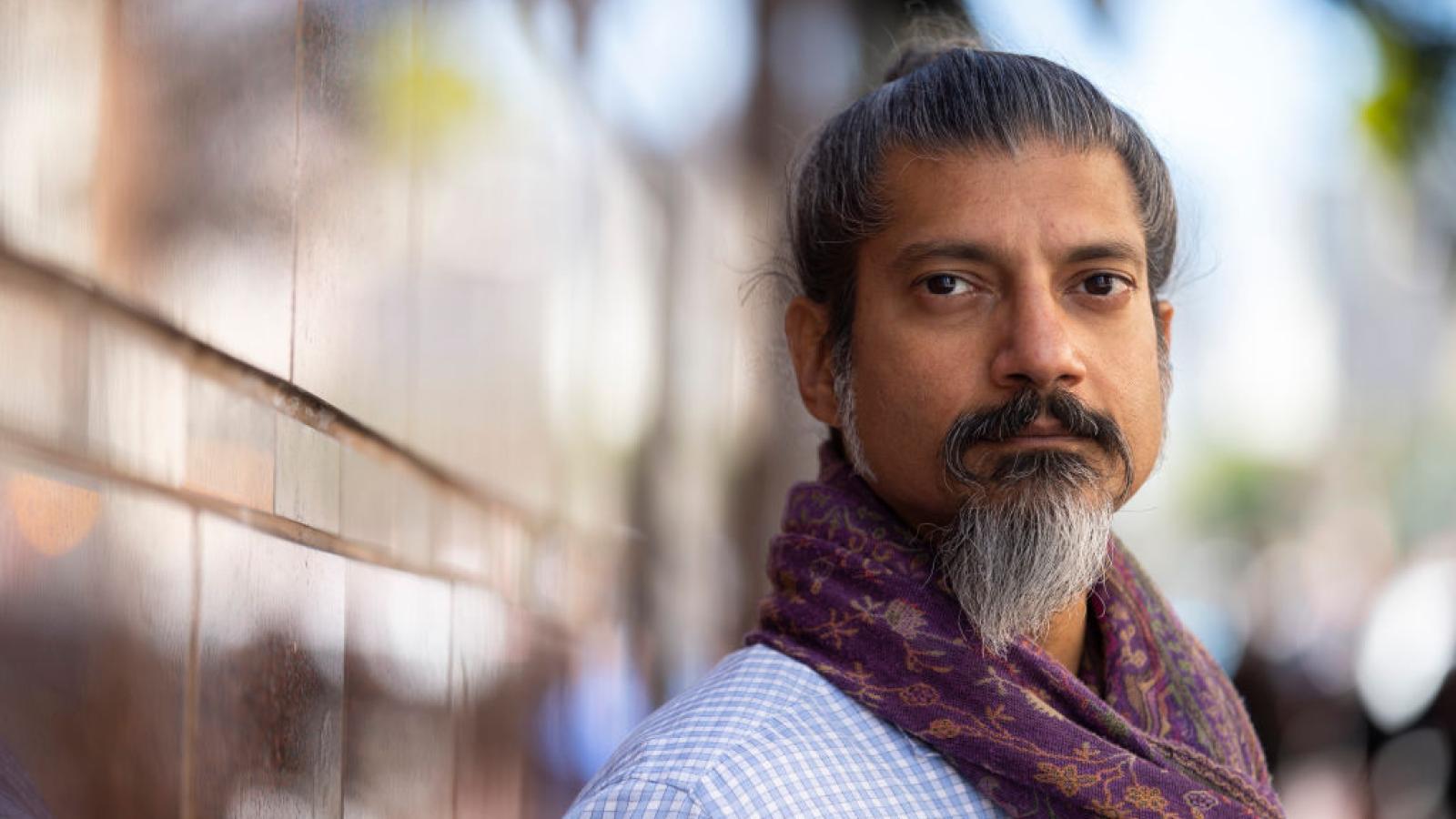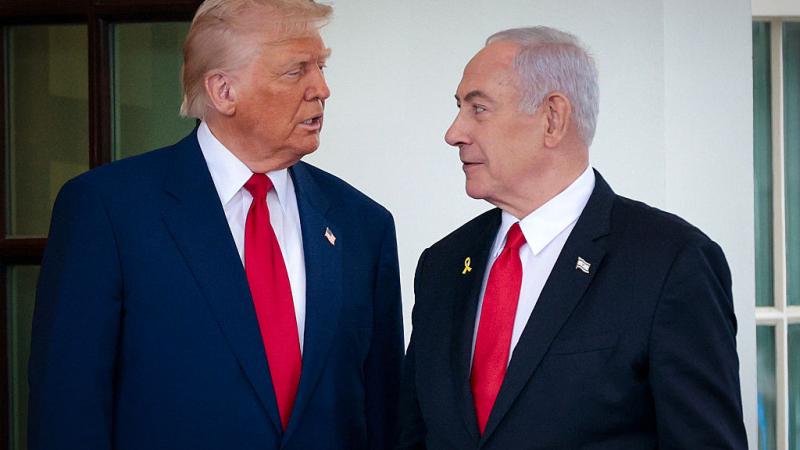What drives Shahid Buttar?

The congressional candidate with the best chance of replacing Pelosi discusses government surveillance.
Interview transcript:
John Solomon 0:00
Alright folks welcome back from the commercial break, and as promised a very special guest today, Shahid Buttar, the candidate running against Nancy Pelosi in the Democratic primary in California, joins us and Shahid, I wanted to welcome you to the show. And first, as we get started, I'd like to talk a little bit about your background because you've done some really interesting stuff. And we've intersected and some issues related to government say surveillance I wanted you to introduce yourself to our audience first.
Shahid Buttar 0:27
Sure, thank you so much for having me. I'm thrilled to be here. I'm an immigrant to the United States. My family came when I was a child. I was two years old, born in the UK, and I'm part of a diaspora from South Asia. So my family is from a country that was colonized for half a millennium by the British. And I grew up in rural Missouri, had a chance to spend the better part of 10 years in Chicago going to school at night to get my undergrad degree while I worked for a series of banks during the day, and then had a chance to both study and then teach at Stanford Law School 20 years ago, and then in the time since then I've basically fought to defend and expand human rights in the courts, in the streets, in the policy sphere, both in San Francisco and in Washington DC.
John Solomon 1:13
It's an amazing record. And you've had a lot of impact, whether it's in grassroots organizing, where I first intersected I believe with you many years ago, when I was still an AP reporter and Washington Post reporter was on some FBI surveillance issues. Talk a little bit about your work for the Electronic Frontier Foundation and some of the efforts to preserve American liberties that you did there.
Shahid Buttar 1:35
Appreciate that, EFF, the Electronic Frontier Foundation is the one of the world's largest and most prolific digital civil liberties organizations. For four years and change, I served as the organization's director of grassroots advocacy. So my job at EFF was basically coordinating and spearheading local and state based campaigns to fight government surveillance around the country. So for instance, one of the last campaigns there I had a chance to support was a campaign here in San Francisco that established the first municipal ban on face surveillance technology established in the ... Since then it has spread from coast to coast. And this is a the idea that if facial recognition tools do exist, that they shouldn't be secretly used by police departments to facilitate discrimination. And that's a problem that's baked both into the law and the code, and responding to the very same events that are driving so many people around the country into the streets, as well as an awareness of the emerging possibility of digital dystopia. I was grateful with my colleagues and the organization supporters around the country to spearhead that campaign. My work there, I would say also around other issues that we worked on at EFF beyond government surveillance that I was proud to have a chance to help promote include promoting the right of users to control the devices that they purchase as opposed to being subject to arbitrary corporate control.
Shahid Buttar 3:05
Net neutrality is another example of the digital right sort of outside the surveillance and right to repair context. There's a whole bunch of issues that relate to government transparency. And that's for me, one of the real reasons I'm running for this race. I've seen Nancy Pelosi as a tool of executive power, and a servant, an agent of executive aggrandizement with really horrifying constitutional consequences. I think a lot of people don't realize the danger, that the centralization of power in the executive branch presents to our republic. And as an immigrant, constitutional lawyer, I take the defense of our republic very seriously. It's why I'm running for Congress because I recognize that the Constitution and we the people need policymakers who understand the Constitution well enough to defend it when it's implicated. And having seen Nancy Pelosi serve as an architect of mass surveillance, as an architect of mass incarceration as a cheerleader for wars for profit and executive secrets. Keeping any number of crimes behind a veil that the public can't see, all of those things sort of, frankly forced my hand. You know, I loved working at EFF but in some respects I, you know, I wouldn't mind still working there. But somebody needs to take Nancy Pelosi out of Congress, and I'm happy to do it.
John Solomon 4:19
Now a lot of people when they oversimplify this say you're just simply running for the left and Nancy Pelosi, but it's a much different coalition that you're building... young people, libertarians, talk a little bit about the enthusiasm that your campaign has been able to generate and the momentum it's starting to get.
Shahid Buttar 4:36
Your right to seize both on the momentum and an independent thing may be its breath. I'm frankly running on all sides of Nancy Pelosi, she's such a partisan without principle, that it's actually possible to run to her left and right at the same time, you know, I'm running to her, right, you might say on issues that relate to, for instance, individual privacy in the face of a government mass surveillance regime, she's thoroughly complicit in. Or international human rights that have been offended by the CIA torture that she's helped cover up for over 10 years. And I'm also running to her left by for instance, promoting and proposing universal health care. I think that's particularly critical at a time like this when a global pandemic threatens not just our economy and and families around the country, but public health as a principle is very much at risk. And the strongest way to protect it is to make sure that people can get medicine when they need it, not just when they can pay for it. And the idea that we treat hospitals as if they were yacht clubs, instead of like the fire department is just frankly, senseless. And I see that also, as a, you know, part of Nancy Pelosi's legacy that we have to shrug off.
Shahid Buttar 5:41
I'm also running to her left on issues like climate justice, I'm very eager to see us protect the future, especially by investing substantial public resources and building a green economy that won't kill everyone's grandkids. Those are so I have the opportunity. Another issue that I'd say is both the left and the right at the same time of Nancy Pelosi is removing cannabis from the Controlled Substances Act. It's a critical lever of racism and policing. And when we end prohibition and enable interstate banking services for cannabis enterprises, that's going to be a massive economic stimulus. And it will increase personal liberty. You know, that's it. That's it. It's a perfect example of a reform that's both left and right. very neatly exposing what I described as this sort of corruption of the corporate center that Nancy Pelosi represents.
John Solomon 6:33
In fact there are many Republicans that are now on board with doing that and many more that are concerned even if you don't agree with the whether cannabis should be decriminalized. They know there's a huge amount of banking money that's sitting in mineshafts and other places that that need to be accounted for for both safety and an economic standpoint. So there's a real movement there. When you look out what is it like to take on you know, one of the largest establishment figures in history larger than life figure in Congress? How do you go about taking on the Speaker of the House within your own party?
Shahid Buttar 7:07
You start local. And then you just stretch. You know, this is the third year of my campaign I ran in 2018. And and in that first race, it was the same cycle. And I ran on a very similar platform to Alexandria Ocasio Cortez, I got more votes here in the 2018 primary than she did in New York and her race. And that was within three months, we raised about $60,000. Fast forward two years, we're now raising what it took me three months to raise two years ago. We're raising that every 10 days right now. And we have thousands of volunteers from every state in the Union. We have over 20,000 donors from every state in the Union. There are us expats who live abroad, all over the world that are supporting us. And it's really humbling to me as an immigrant to have what amounts to a global support base of Americans around the world who recognize the need for this congressional seat to be occupied by someone else. When you asked about, you know, what does it look like and speaks a little bit now try to dovetail with the earlier question in terms of the momentum that we're seeing, a lot of our early campaigning looked like basically just showing solidarity with the different movements here in San Francisco responding to the objects of policy failures. So, for instance, the San Francisco tenants union is a group responding to the crisis in affordable housing that Nancy Pelosi has been a part of you know, she's been in Congress for 30 years, and basically helped engineer the crisis in affordable housing by overseeing a transformation in the landscape of federal support for for local public housing.
Shahid Buttar 8:39
And the tenants union is one of the many groups here locally, that supported us. Another organization that supports us because we've shown solidarity in this way or left flank vets. So these are basically vets against wars. And they've come back particularly from service in Afghanistan and Iraq and they are concerned about the uses of our military in ways that don't defend our national security, but instead defend Wall Street profits. And that's kind of the story of our military industrial complex. And I come from a military family, my brother served in the US Army. And I am absolutely adamant that if we are going to put any soldiers at risk ever, it should be to defend the United States not to defend Wall Street's interests halfway around the world. And that's half the reason we're in this mess. The extra territorial projection of our so called interests, has undermined US national security for 70 years. And another way of putting that is that the agencies charged with keeping us safe, the national security agencies, they undermine national security at every point in time I've written you know, chapters and books about this, I could, you know, dive into that if it's interesting. It's very parallel, frankly, to police, where we also charged with keeping us safe, and you know, in entirely too many neighborhoods in the United States, the very same people who we invest public dollars and to keep us safe, unfortunately, place our neighbors at risk. And there's a very clean and unfortunate parallel there with with the macro sphere in the national security arena that similarly reflects, you know, you could say it's corruption, you could say it's corporate influence, you could say it's a disrespect for human rights. It's all of those things. And I'm running to challenge that on behalf of the people of the United States.
John Solomon 10:18
It's remarkable to watch what's happened. So if you go back to 2018, after you lost the primary, a Republican was able to challenge Pelosi in the general election, and she got 86% of almost 87% of the vote. In this past primary, no Republican outperformed you. So you get to run against her in the fall election, but she only got 74% of the vote in her own primary. And so do you see that there's some erosion of that long term bond that she has with your local voter there? I mean, the numbers have changed? That's a 14 point shift in two years.
Shahid Buttar 10:53
Absolutely. And I would say it's frankly bigger than that. I mean, her totals there are inflated, particularly by her name recognition. The only reason frankly she even you know, did as well as she did most recently is because I'm a relative unknown in San Francisco, you know, people know me in the digital rights community people know me in the anti war community. But the general public, you know, I'm relatively new name to them, certainly relative to the Speaker of the House has been in office for 30 years. And is it you know, a viral feature and every news cycle. So I frankly don't think she has a chance. The only reason she stayed in office for 30 years is because she has relied on corporate dollars to entrench her, you know, she runs Congress through a mix of sort of carrots and sticks. And those same carrots and sticks have been what's kept her in office for 30 years, and she hasn't debated a challenger since the 80s. And I do think that as the first Democrat, and this is very much a democratic town is the first Democrat to reach a November election against her. I think it certainly makes sense for her to debate me If only so that the district can have a sense of what the options are. You know, I would describe Nancy Pelosi as having relied on corporate propaganda to stay in office as well as corporate dollars. And you know, at the end of the day, this isn't a corporatocracy.
Shahid Buttar 12:11
This is a democracy, we answer to we the people, and she might have Wall Street support, but I have San Francisco support, then over the next four months, I'm looking forward to continuing to build a coalition... to riff on a question that you raised earlier now the people supporting us include, particularly young people, particularly people who work in tech have widely broke into our campaign recognizing the dystopia that they might be made complicit in building if they don't put policymakers in place who are able to recognize the ways that our rights are implicated by by public policies. In addition to the tech community and young people, we're also getting a lot of support from people particularly concerned about the long standing abuses of our military industrial complex. We're getting a lot of support from the Black Lives Matter movement, the immigrant rights movement as a proud immigrant myself. I'm very grateful for the chance to defend basic American values in the face of authoritarianism. And I see a lot of people both, you know, immigrants themselves in people born here in the United States, recognizing the importance of that voice, not just somebody who understands the Constitution, but as an immigrant, Muslim.
Shahid Buttar 13:19
You know, I have skin in the game, I've understood what is happening here in the United States for years, and the erosion of our individual freedoms, the accretion of power and secrecy in the executive branch that's alarmed me for decades. And I've been actively working to try to stop it for decades. And I do that as a freedom fighter. You know, I'm concerned about democracy in America. I'm very grateful for the chance to help defend it. And I do think that if we're going to elect anybody to Congress, it should be people who who have that orientation and that value first, before an attack, any partisan, and before an attachment to, you know, any set of interests. You know, I would like to see policymakers put the Constitution and we the people first and that's exactly what I'm here to do.
John Solomon 14:06
You've got some big heavy hitters in your corner as well beyond Silicon Valley, you've got AOC correct in your corner, right?
Shahid Buttar 14:15
I wish I did. She's she and others members of the squad... You know, I mentioned that Pelosi runs Congress with carrots and sticks. So this squad has been, you know, unfortunately, politically, I don't want to say neutralized or co opted or intimidated. I don't know which of those things it is. But unfortunately, I know the squad has been quite silent in our race, for better or worse.
John Solomon 14:38
Oh, for some reason, I thought I had seen that she had. She had suggested that it was good that Pelosi had a challenge and maybe I missed that.
Shahid Buttar 14:45
She might have said that, but she hasn't actually endorsed us... certainly any number of people online are encouraging her to endorse us, if only because it's kind of hard to, on the one hand maintain the principles that she publicly espouses, and not frankly... how much she does to enforce a corporate Center and the rule of corporate center, despite [unintelligible].
John Solomon 15:09
Yeah, as you grow your coalition, I reckon you got to go from 13%. You got to get to 51%. What things will happen and will policy debate... there's been no agreement yet that she would debate you correct.
Shahid Buttar 15:20
I certainly hope that she debates me, I think that ultimately turns on the press. I think that she can, she can turn down invitations from us. And she has and I expect that, but I don't think she can get away with turning down an invitation from CNN, or the San Francisco Chronicle. And so I'm very eager to see those news outlets, perform their constitutional function and give constituents here a chance to hear the contrast. The other things that are going to happen or a continued expansion of our endorsements. Some of the people who have endorsed us include three Presidential candidates, Mike Gravel, who was critical whistleblower and or supporter of whistleblower in the US Senate. It's largely because of Mike Gravel that we learned the real history of the war in Vietnam for instance, and I think But one of the reasons Edward Snowden is an international exile, instead of lauded as the national hero that he is, is that when he came forward with his revelations of government corruption, there was no Mike Gravel in Congress to defend him. And, you know, I think a lot about Edward Snowden and I think a lot about the next Edward Snowden. And I think a lot about how different that person's experience will be if I'm in Congress versus if they're not. And and that's one of the reasons I'm running. Other things that will happen, it will include just the expansion of that set of endorsers. So in addition to Mike Gravel, other people who have endorsed us include Lawrence Lessig, who ran for President in a previous cycle, I had a chance to teach for him he was on my first bosses I want to use my Constitutional law professor 20 years ago, been endorsed by several local folks, including former president of our Board of Supervisors, Matt Gonzalez. Eric Marr, former member of the board of supervisors, number of local groups, particularly in Bernie's coalition, so the SF Bernie Kratz Progressive Democrats America, now revolution groups, frankly across the country, DSA chapters as well.
Shahid Buttar 17:06
One of the particular sets of endorsers I'm very grateful for, and it's poignant this week to reflect on this in the wake of the Supreme Court decision yesterday. Jason West was the mayor of New Paltz, New York. And he was one of my first clients when I was in private practice. He was the second mayor in the country to recognize the right of consenting adults to marry a partner of their choice and he was the only person in the country ever criminally prosecuted for supporting gay marriage. And I'm very proud to have fought for gay rights in the courts since 2004, especially as a cis hetero Muslim lawyer. And I raised that history both because it's implicated very recently, the Supreme Court yesterday, expanded workplace correct actions against discriminate. Absolutely, landmark ruling. And I remember the last one in this line, the Obergefell decision in 2015 was a decision by a similarly constituted court to recognize and enshrine nationally, the right of consenting adults to marry a partner of their choice. I raised this because Nancy Pelosi did not support marriage equality until the eve of that decision. And I live in the gay capital of the country. And I fought for gay rights as a Muslim lawyer, because I recognize that one person's impression is somebody else's oppression tomorrow, and we can't pretend to care about justice, if we don't go to bat for our neighbors rights, even if our own rights aren't implicated, you know, my history, my career has been all about solidarity. And I fought for gay rights for exactly that reason, in a solidarity and a recognition that civil rights for some have to include civil rights for all. And it is exactly that inclination, to look skeptically at power, to look at ways to defend individual rights, to look at creative ways to confront power on behalf of those individual rights. And that's the practice that that brought me here. And that's very much the practice that I want to take to Congress on behalf of we the people of the United States.
John Solomon 19:02
I want to take it one year because a lot of our readers obviously have an interest in the Russia case, the Russia collusion case and what we've learned about the FBI, and I want to focus on one thing because you're a lawyer, and I know this is a subject that goes beyond politics or Donald Trump or Nancy Pelosi, when you hear the Inspector General, the Justice Department say that there were 29 fights of warrants in the last five years that they reviewed. In all 29. All 29 failed the test for accuracy, and 24 of the 29 apparently didn't even have the alleged files that are needed the Woods files to substantiate the invasion of one's privacy. Do you see an agency in distress here and forget the Russia collusion case, per se, but what do you think of the FBI current compliance with Pfizer?
Shahid Buttar 19:50
I've seen the FBI assault liberty in the United States for decades, like even long before I became a lawyer, the FBI is earliest history going back over 100 years is pervaded by the suppression of rights. Another way to put that as there's never been a point at which the FBI was actually a law enforcement institution, it's violated the Constitution, at least in the context of suppressing First Amendment rights for over a century, whether it was deporting labor union activists during the Palmer Raids, whether it was infiltrating civil rights groups in the 50s, and the 60s and 70s, or infiltrating Latin American solidarity groups in the 80s, or criminalizing animal rights and environmental rights groups as opposed to terrorists in the 90s under Clinton. There's never been a point at which the FBI respected first amendment rights. And over the course of my career, I've seen that dial up. For there was two years that I led, I launched a program to combat racial and religious profiling, particularly confronting the FBI at an organization here in San Francisco called Muslim advocates. That was the tail end of the Bush administration in the beginning of the Obama administration. My central antagonist from 2008 to 2010 was Bob Muller. He was the head of the FBI. And you know, I remember writing a coalition letter to Congress in 2010, Bob Muller lied to Congress and then admitted it in writing. Never paid a price for it, you know, what he was lying to Congress about was the legal standard under which the FBI presumes upon itself the right to infiltrate First Amendment protected groups.
Shahid Buttar 21:25
And it's an incredibly sensitive power because it's been used by the Bureau to in its own words, neutralize domestic social movements any number of times in the past, and this would have been July I think, 2010. Senate Judiciary Committee hearing, Bob Muller claims in this hearing that a reasonable suspicion of criminal activity is required as a legal predicate to justify the use of undercover infiltration as law enforcement tactic. And I knew that wasn't true and he then wrote a letter to the committee. After the cameras were off admitting it wasn't true. The letter was invalid. Remember that worse than the fact of the letter, it's one thing to send the letter saying, Oh, just kidding after the cameras are off. It's another thing when the letter admits, as it did, that there is no effective legal standard constraining the FBI. He said in this letter, that reasonable suspicion is one example of a proper purpose, but any proper purpose is sufficient. And the thing I would focus on here as a lawyer is that there's no means tailoring it... You're supposed to have some degree of properness to the purpose, or some degree of compellingness that depending on the degree of scrutiny that require degree of how compelling is the purpose becomes increasingly extreme, but then it also requires narrow tailoring, you have to have a tailored program to the purpose and the FBI doesn't acknowledge any need to tailor its infiltrations to purpose and this is 1.0 non electronic surveillance when you start talking about national security letters and all the digital surveillance tools...
Shahid Buttar 23:00
the bureau knows no limit at all. There's there is no effective authority constraining there theoretically are congressional committees that were founded in the wake of the COINTELPRO abuses, namely that the house Permanent Select Committee on Intelligence and the Senate Select Committee on Intelligence and they are the oversight bodies. But the oversight bodies have been thoroughly co opted. They don't actually practice effective oversight. They're spoon fed information by the agencies. And frankly, the agencies lie to them all the time. That's that's what we were supposed to learn from Edward Snowden was that everything the agencies that said to Congress over the prior year was just a flat out lie. And there's no reason to think that they've been telling the truth over the last 10 years. Since, you know, no one ever held them to account for the last set of things that were revealed.
John Solomon 23:43
When you look at the Russia case, do you see the sort of abuses you've seen elsewhere? And do you think it's a moment for Republicans who often have been the law and order party and have kind of not embraced these issues, to join with enough Democrats and liberals and libertarians to make a difference to make up policy change?
Unknown Speaker 24:01
I certainly hope so because the the investigation in the surrounding set of circumstances exposed and revealed, I think how everyone shares an interest in our basic rights. I think there's long been an illusion that rights are only valued or needed by some communities and the fact of the matters, it's our rights that make us American. And I do hope that Republicans who maybe were willing to defer to agencies in the past are willing to look skeptically as the founders of our nation did at institutional power, and embrace checks and balances. I'm very deeply patriotic, and the constitutional design, the genius of pitting powers against each other, to protect the people is incredibly poignant, and it's been lost entirely in the constitutional design. And I do hope that you know, many Republicans respect the Constitution. I hope that they come also to recognize how they share an interest in its preservation. And I do think that's happening. To answer the first part of your question about the legitimacy of the investigation itself. You know, I am not a fan of this President. But I don't think that the Russian investigation, frankly, you know, made a lot of sense. I mean, I would just say two things here. One is really suspicious to me when political figures, kids have lucrative positions that they're not qualified for.
Shahid Buttar 25:21
And two if we're going... the thing about Trump that I found most alarming that I frankly, wish he were impeached for his corruption, you know, he steals from the American people every day he puts taxpayer money in his pocket. That to me, was the impeachable thing, not a partisan crime. I mean, yes, it's problematic to invite foreign interference in the US election, and that, that is a crime and it could be impeachable, you know, to the extent the votes were there in the Senate, but the whole thing about Russia seemed to me to be, you know, trying to chase a attenuated fear when there was a real problem and documented fact that no one was actually addressing. And that was the continued pattern and practice of self enrichment at public expense. That not just Trump practices. You know, this is a really important point to impress upon here. And I think this is the reason that Nancy Pelosi didn't include corruption in the late and limited impeachment facade that she supported. Many corporate Democrats have the same problem, you know corporate politicians, we shouldn't have corporate politicians, we shouldn't have politicians that profit from... We shouldn't have politicians that put corporate issues before their constituents. And that's a common problem across both parties. And I saw that reflected also...
John Solomon 26:39
Now, when I worked for Newsweek, I wrote a story about how Nancy Pelosi was dealing with a credit card issue coming out of the financial crisis. And her husband, I believe it was Paul Pelosi got preferred stock offering from one of the credit card companies right at the moment that these discussions are going on that got a lot of controversy for a few days and but the culture of Congress, people getting rich or having their families get richer around the corporate interest... in interested in their policy has not changed one bit. There's been a lot of lip service over 30 years in my journalism career, but there hasn't been a whole lot of change.
Shahid Buttar 27:14
But you know who's been in office that entire 30 years is Nancy Pelosi, [unintelligible] passed in response that enabled those effectively, what would have been insider trading, illegal insider trading transactions are permitted under some parameters for member of Congress under a provision called the Pelosi provision, and they have provisions named after prolific members of Congress that enable ongoing corruption, it might be worth removing those people and getting new voices that aren't there to use their office as a path to public fleecing.
John Solomon 27:45
Well, there'll be there'll be a lot of people watching what you do this fall. And it's the first real challenge that Speaker Pelosi has had in her and her district in a very long time. And it'll be two Democrats against each other, which we haven't seen in the district for a long time. And so that's it. Very important as it's the first time has ever happened. That's right. It's the first time. Yeah, that's right. This is the first time. So this will be historic. Well, I hope to have you back on. We'll be monitoring this race through the year. And I thank you so much for taking the time to, to share what you're doing and to give us some of the lay of the land for what's going to be one of the more interesting races in the fall.
Shahid Buttar 28:19
My pleasure, thank you so much. I look forward to that. Keep up the good work.
John Solomon 28:23
All right, folks. We'll be right back to wrap things up after the commercial break.













